Then at 7:30 p.m. in Mills Hall, the UW Wind Ensemble (below top), conducted by Scott Teeple (below bottom), will perform a FREE concert of works by Jim Territo, William Schuman, Charles Ives, Percy Grainger and Paul Hindemith.
The Well-Tempered Ear
Classical music: Today is Memorial Day – a good time to remember the civilian dead as well as the military dead. The Ear likes Ravel’s “Le Tombeau de Couperin.” What music would you listen to to mark the holiday?
2 Comments
IF YOU LIKE A CERTAIN BLOG POST, PLEASE SPREAD THE WORD. FORWARD A LINK TO IT OR, SHARE or TAG IT (not just “Like” it) ON FACEBOOK. Performers can use the extra exposure to draw potential audience members to an event.
By Jacob Stockinger
Today is Memorial Day, 2019, when the nation honors the men and women who died in military service. The Ear would like to see much more attention and remembrance paid to the huge number of civilians — much higher than military personnel and soldiers — who have died in wars and military service, whose lives weren’t given but taken.
In fact, why not establish and celebrate a separate holiday to honor civilian deaths in war? Perhaps it would help to know the detailed history and background of the holiday, since it is not as straightforward or modern as you might expect:
https://en.wikipedia.org/wiki/Memorial_Day
What piece of classical music would you listen to in order to mark the holiday?
There is a lot to choose from.
The Ear especially likes “Le Tombeau de Couperin” by the early 20th-century French composer Maurice Ravel. It is a “tombeau” – a metaphorical “tomb” or “grave” used by the French to mean paying homage to the dead – in two senses.
Its neo-Classical or neo-Baroque style recalls the 18th-century world of French composers and harpsichordists including Jean-Philippe Rameau and Francois Couperin. But in a second sense, Ravel (below, in 1910) dedicated each of the six movements to a friend – in one case, two brothers — who had died during World War I. So part of its appeal is that it is a very personal statement of grief.
Here is more detailed background about the piece:
https://en.wikipedia.org/wiki/Le_tombeau_de_Couperin
The work was orchestrated later, which added sonic color but cut out two movements. The Ear prefers the original piano version, which seems a little more percussive, austere and straightforward — less pretty but more beautiful, and more in keeping with the holiday by evoking sentiment without sentimentality.
In the YouTube video at the bottom, you can hear it in a live performance by Canadian pianist Angela Hewitt.
But there are lots of other works to choose from by many composers: John Adams (“The Wound Dresser” after poetry of Walt Whitman); Samuel Barber (Adagio for Strings); Ludwig van Beethoven (slow movements of Symphonies 3 and 7, and of the Piano Sonata Op. 26); Johannes Brahms (“A German Requiem”); Benjamin Britten (War Requiem); Frederic Chopin (Funeral March from Sonata No. 2, polonaises, preludes and the “Revolutionary” Etude); Aaron Copland (“Fanfare for the Common Man” and “Letter From Home”); Edward Elgar (“Nimrod” from “Enigma Variations”); Gabriel Faure (Requiem and Elegy for cello); Franz Joseph Haydn (“Mass in Time of War”); Paul Hindemith (“When Lilacs Last in the Dooryard Bloom’d – A Requiem for Those We Love”); Charles Ives (Variations on “America” and “Decoration Day”); Henry Purcell (“When I Am Laid in Earth”); John Philip Sousa (“Honored Dead” March); Ralph Vaughan Williams (Symphony No. 3 “Pastoral”); and many others, including Johann Sebastian Bach and Wolfgang Amadeus Mozart.
Here is a list from the British radio station Classical FM:
Here is a list of patriotic music from Nashville Public Radio:
Here is another list from an American source:
http://midamerica-music.com/blog/five-classical-works-memorial-day/
Here are more sound samples from NPR:
https://www.npr.org/templates/story/story.php?storyId=104341851
And here is another one from Northwest Public Radio:
https://www.nwpb.org/2015/05/22/memorial-day-music-commemorate-celebrate/
What do you think of a holiday commemorating civilian deaths in war?
What favorite piece of classical music would you play and listen to as you mark Memorial Day?
Let us know, with a YouTube link if possible, in the COMMENT section.
The Ear wants to hear.
Tags: #18thCentury, #20thCentury, #AaronCopland, #AdagioforStrings, #AmericanPatriotism, #AngelaHewitt, #BaroqueComposer, #BaroqueEra, #BaroqueMusic, #BenjaminBritten, #BlogPost, #BlogPosting, #ChamberMusic, #CharlesIves, #ChoralMusic, #Classicalera, #ClassicalStyle, #DecorationDay, #EdwardElgar, #FacebookPost, #FacebookPosting, #FanfarefortheComonMan, #FrancoisCouperin, #FranzJosephHaydn, #FredericChopin, #Frenchcomposer, #FrenchHarpsichord, #FrenchMusic, #FuneralMarch, #GabrielFaure, #HenryPurcell, #IraqWar, #Jean-PhilippeRameau, #JohannesBrahms, #JohannSebastianBach, #JohnAdams, #JohnPhilipSousa, #KoreanWar, #LeTombeaudeCouperin, #LudwigVanBeethoven, #MauriceRavel, #MemorialDay, #NashvilleTennessee, #NationalPublicRadio, #NimrodVariation, #PatrioticMusic, #PaulHindemith, #PianoMusic, #PianoSonata, #PublicRadio, #RalphVaughanWilliams, #SamuelBarber, #TheCivilWar, #TheEar, #ThemeAndVariations, #VietnamWar, #VocalMusic, #WaltWhitman, #WarDead, #WarRequiem, #Wikipediaentry, #WolfgangAmadeusMozart, #WorldWarI, #WorldWarII, #YouTubevideo, 18th century, 20th-century, Aaron Copland, Adagio for Strings, Afghanistan, American, Angela Hewitt, appeal, Arts, attention, audience, austere, Bach, background, Baroque, Beethoven, Benjamin Britten, blog, British, brother, Canada, Canadian, Cello, Chamber music, Charles Ives, choral music, Civil War, civilian, Classical, color, Compact Disc, composer, dead, Decoration Day, die, Early music, Earth, Edward Elgar, Elegy, evoking, Facebook, Fanfare, Fanfare for the Common Man, flag, FM, forward, François Couperin, Franz Joseph Haydn, Frédéric Chopin, French, friend, funeral march, Gabriel Fauré, give, given, grave, grief, harpsichord, Henry Purcell, History, Holiday, homage, Home, honor, Iraq, Iraq war, Jacob Stockinger, Jean-Philippe Rameau, Johann Sebastian Bach, Johannes Brahms, John Adams, John Philip Sousa, Korean War, Le tombeau de Couperin, letter, like, link, Love, Ludwig van Beethoven, lyrics, Madison, mass, Maurice Ravel, memorial, Memorial Day, military, modern, movement, Mozart, Music, Nashville, Nimrod, northwest, NPR, opera, Orchestra, orchestrate, original, other, part, pastoral, Pastoral Symphony, PastoralSymphony, patriot, patriotic music, patriotism, Paul Hindemith, percussive, performer, personal, Piano, Piano sonata, Poetry, polonaise, Prelude, public radio, Radio, Ralph Vaughan Williams, remember, remembrance, Requiem, Samuel Barber, sentiment, sentimentality, service, share, Sonata, sonic, source, statement, style, symphony, tag, take, taken, The Ear, theme and variations, today, tomb, UK, United States, variations, Vietnam War, Violin, vocal music, war dead, War Requiem, we, Website, Wikipedia, Wisconsin, wisconsin public radio, Wolfgang Amadeus Mozart, works, World War I, World War II, YouTube
Classical music: Saturday afternoon, Live From the Met in HD closes this season with an acclaimed production of “Dialogues of the Carmelites.” Here is a background story, two rave reviews, and next season’s 10 operas
2 Comments
ALERT:The Brass Choirs of the Wisconsin Youth Symphony Orchestras will present an afternoon of brass music this Saturday afternoon, May 11, at 2:30 p.m. in Mills Concert Hall, 455 North Park Street, in Madison. Directed by Tom Curry, the program features brass musicians from WYSO’s Concert, Philharmonia and Youth Orchestras. The concert is FREE and OPEN TO THE PUBLC. Music to be played is by Johann Sebastian Bach, George Frideric Handel, Giovanni Gabrieli, Charles Gounod, Edward Elgar, Paul Hindemith, Alan Hovahaness and Karel Husa.
CORRECTION: The Madison Youth Choirs will perform its “Legacy” concerts this weekend in the Capitol Theater of the Overture Center on Saturday and Sunday — NOT Friday, as mistakenly listed and then corrected in the original post, which is below: https://welltempered.wordpress.com/2019/05/08/classical-music-the-madison-youth-choirs-will-explore-the-theme-of-legacy-in-three-concerts-this-saturday-and-sunday-in-the-capitol-theater-of-the-overture-center/
IF YOU LIKE A CERTAIN BLOG POST, PLEASE SPREAD THE WORD. FORWARD A LINK TO IT OR, SHARE or TAG IT (not just “Like” it) ON FACEBOOK. Performers can use the extra exposure to draw potential audience members to an event.
By Jacob Stockinger
This Saturday afternoon, May 11, the last production of this season’s “Live From the Met in HD” series, broadcast worldwide via satellite to cinemas, is Francis Poulenc’s “Dialogues of the Carmelites.”
By all accounts, it would be hard to end on a higher, stronger or more darkly dramatic note, given the outstanding music and performance of the score as well as the superb acting. (There is a brief preview of short scenes in the YouTube video at the bottom.)
The world premiere of the opera took place in 1957 at La Scala in Milan, Italy. One of the most successful operas of the later decades of the 20th century, “Dialogues of the Carmelites” is a rare case of a modern work that is equally esteemed by audiences and experts, according to program notes from the Metropolitan Opera.
The opera focuses on a young member of the order of Carmelite nuns, the aristocratic Blanche de la Force, who must overcome a pathological timidity in order to answer her life’s calling. The score reflects key aspects of its composer’s personality: Francis Poulenc (below) was an urbane Parisian with a profound mystical dimension, and the opera addresses both the characters’ internal lives and their external realities.
The opera takes place between 1789 and 1794 in Paris and in the town of Compiègne in northeastern France, the site of the Carmelite nuns’ convent.
Its historical basis is the martyrdom of a group of 16 Carmelite nuns and lay sisters from Compiègne, who chose to offer themselves as victims for the restoration of peace to France during the French Revolution.
The Met uses the classic John Dexter production of Poulenc’s devastating story of faith and martyrdom.
Mezzo-soprano Isabel Leonard (below right) sings the touching role of Blanche and soprano Karita Mattila (below left), a legend in her own time, returns to the Met as the Prioress.
The conductor for the performance is the Met’s highly acclaimed new music director Yannick Nézet-Séguin, who also leads the Philadelphia Orchestra and the Metropolitan Orchestra of Montreal.
The high-definition broadcast of the live performance from the Metropolitan Opera (below) in New York City starts at noon and runs until 3:10 p.m. with two intermissions. (It will also air at noon on Wisconsin Public Radio.)
The encore HD showings are next Wednesday, May 15, at 1 p.m. and 6:30 p.m.
The opera will be sung in French with supertitles in English, German and Spanish.
Tickets for Saturday broadcasts are $24 for adults and $22 for seniors and children under 13. For encore showings, all tickets are $18.
The cinemas where the opera can be seen are two Marcus Cinemas: the Point Cinema on the far west side of Madison (608 833-3980) and the Palace Cinema (608 242-2100) in Sun Prairie.
Here is a link to the Marcus website for addresses and more information. You can also use them to purchase tickets:
https://www.movietickets.com/movies
Here is a link to the Metropolitan Opera’s website where you can find the titles, dates, casts, production information and video clips of all 10 productions this past season — PLUS an announcement, with dates and titles, for next season’s 10 productions (which feature five new productions but no Verdi):
https://www.metopera.org/season/in-cinemas/
Here is a background story that focuses on the French-Canadian conductor Yannick Nézet-Séguin, who leads the orchestra in this production and is the new music director of the Metropolitan Opera:
https://www.nytimes.com/2019/05/02/arts/music/met-opera-dialogues-des-carmelites.html
Here is a rave review of “Dialogues of the Carmelites” by senior classical music critic Anthony Tommasini for The New York Times:
https://www.nytimes.com/2019/05/05/arts/music/dialogues-des-carmelites-met-opera-review.html
And here is another rave review from New York Classical Review:
http://newyorkclassicalreview.com/2019/05/met-closes-season-with-a-riveting-devastating-carmelites/
Here are links to a synopsis and program notes:
https://www.metopera.org/discover/synopses/dialogues-des-carmelites/
https://www.metopera.org/season/2018-19-season/dialogues-des-carmelites/
And here is a Wikipedia history of the hi-def broadcast series that gives you more information about how many cinemas it uses, the enormous size of the worldwide audience – now including Russia, China and Israel — and how much money it makes for The Met.
https://en.wikipedia.org/wiki/Metropolitan_Opera_Live_in_HD
Tags: #20thCentury, #AlanHovhaness, #AlbanBerg, #AnthonyTommasini, #BaroqueMusic, #BaroqueOpera, #BlogPost, #BlogPosting, #BlogReview, #BrassChoir, #BrassMusic, #CapitolTheater, #CatholicReligion, #CharlesGounod, #ChinaBroadcast, #ChristianReligion, #DialoguesoftheCarmelites, #EdwardElgar, #EnglishLanguage, #FacebookPost, #FacebookPosting, #FrancisPoulenc, #FrenchCanadian, #FrenchLanguage, #FrenchMusic, #FrenchRevolution, #GaetanoDonizetti, #GeorgeFridericHandel, #GermanLanguage, #GiacomoPuccini, #GiovanniGabrieli, #GiuseppeVerdi, #Hi-Definition, #HomeWebsite, #IsabelLeonard, #JohannSebastianBach, #JohnDexter, #JulesMassenet, #KarelHusa, #KaritaMattila, #LaScala, #LiveFrom the MetinHD, #LivePerformance, #MadamaButterfly, #MadisonYouthChoirs, #Marcus, #MarcusTheaters, #MarcusTheatres, #MetLiveinHD, #MetropolitanOpera, #MetropolitanOperaLiveinHD, #MetropolitanOrchestraofMontreal, #Mezzo-sopranoSinger, #MilanItaly, #MontrealCanada, #MovieTheater, #MusicCritic, #MusicDirector, #MusicEducation, #NewMusic, #NewYorkCity, #NewYorkClassicalReview, #OperaMusic, #OvertureCenter, #PalaceCinema, #ParisFrance, #PaulHindemith, #PhiladelphiaOrchestra, #PhiladelphiaPennsylvania, #PhilharmoniaOrchestra, #PhilipGlass, #PointCinema, #PorgyandBess, #ProgramNotes, #RichardWagner, #RomanCatholicism, #SopranoSinger, #SpanishLanguage, #SunPrairie, #TheFlyingDutchman, #TheMet, #TheNewYorkTImes, #VocalMusic, #Wikipediaentry, #WisconsinPublicRadio, #WisconsinYouthSymphonyOrchestras, #WorldPremiere, #YannickNezet-Seguin, #YouthOrchestra, #YouTubevideo, 20th-century, address, afternoon, Agrippina, air, Alan Hovhaness, Alban Berg, alert, Anthony Tommasini, aristocratic, Arts, aspect, audience, background, Baroque, basis, blog, brass, brass choir, Broadcast, calling, Capitol Theater, Carmelite, cast, Charles Gounod, China, choral music, Christian, Christianity, cinema, classic, Classical music, composer, conductor, convent, correction, dark, darkly, date, decade, devastating, dialogue, Dialogues of the Carmelites, dimension, Donizetti, drama, dramatic, Edward Elgar, encore, end, English, enormous, equal, esteem, expert, experts, external, Facebook, faith, forward, France, Francis Poulenc, free, French, French language, French Revolution, French-Canadian, georgegershwin, German language, Gershwin, Giovanni Gabrieli, global, Handel, HD, hi def, high, historical, History, information, inner, intermission, Isabel Leonard, Israel, Jacob Stockinger, Johann Sebastian Bach, John Dexter, Karel Husa, Karita Mattila, key, La Scala, language, last, lay, legend, like, link, Live From The Met in HD, live performance, Madama Butterfly, Madison, Madison Youth Choirs, Manon, martyr, martyrdom, Massenet, member, Met Live in HD, Metropolitan Orchestra of Montreal, Mezzo-soprano, Milan, modern, money, Montreal, more, Movie theater, Music, music critic, Music director, Music education, mystical, new, New York City, New York Classical Review, New York Times, Nobel Peace Prize, noon, note, nun, opera, Orchestra, order, outer, outstanding, overcome, Overture Center, Palace Cinema, Paris, Parisian, pathological, Paul Hindemith, peace, Pennsylvania, performer, personality, Philadelphia, Philadelphia Orchestra, Philharmonia, Philip Glass, Point Cinema, Porgy and Bess, preview, prioress, production, profound, program notes, public, Puccini, purchase, rave, realities, reality, Religion, restoration, review, role, Roman Catholicism, Russia, satellite, satellite broadcast, Saturday, scene, score, Season, share, short, showing, sisters, size, soprano, Spanish, story, strong, successful, Sun Prairie, sung, superb, supertitle, synopsis, tag, The Flying Dutchman, the Met, The New York Times, theatre, time, timid, timidity, title, Tosca, touching, Turandot, United States, urbane, Verdi, victim, victims, vocal music, Wagner, Website, Wikipedia, Wisconsin, wisconsin public radio, Wisconsin Youth Symphony Orchestras, work, world premiere, worldwide, Wozzeck, Yannick Nézet-Séguin, you, young, Youth Orchestra, YouTube
Classical music: This Friday night, the UW Symphony Orchestra depicts visual art in sound. Plus, two all-student string orchestras perform Saturday afternoon and the UW Wind Ensemble performs Saturday night
1 Comment
IF YOU LIKE A CERTAIN BLOG POST, PLEASE SPREAD THE WORD. FORWARD A LINK TO IT OR, SHARE or TAG IT (not just “Like” it) ON FACEBOOK. Performers can use the extra exposure to draw potential audience members to an event.
CORRECTION: The concert by Sonata à Quattro TONIGHT at Oakwood Village West is at 7 p.m. — NOT 8 p.m. as mistakenly stated in Tuesday’s blog posting.
By Jacob Stockinger
This weekend, two student orchestras will give FREE concerts at the University of Wisconsin-Madison’s Mead Witter School of Music.
On Friday night, April 26, at 8 p.m. in Mills Hall, the UW Symphony Orchestra (below top) under conductor Chad Hutchinson (below bottom), who has won prizes and acclaim for his programming, will give a FREE “gallery tour” concert exploring how visual art is depicted in sound.
The program opens with “Finding Rothko” (2006), by American composer Adam Schoenberg (below).
The musical work depicts four Abstract Expressionist paintings by the Russian-American master Mark Rothko (below top, above his 1956 painting in Orange. You can hear the “Orange” section of the musical work in the YouTube video at the bottom.)
To read the composer’s notes, go to: https://adamschoenberg.com/works/finding-rothko/
To find out more about the composer, go to: https://en.wikipedia.org/wiki/Adam_Schoenberg
 The concert concludes with the dramatic, dark and moody “Pictures at an Exhibition” — in the classic orchestration by Maurice Ravel – by Russian composer Modest Mussorgsky (below).
The concert concludes with the dramatic, dark and moody “Pictures at an Exhibition” — in the classic orchestration by Maurice Ravel – by Russian composer Modest Mussorgsky (below).
The musical work is a set of vignettes evoking drawings and watercolors by Viktor Hartmann (below top), including the famous ending with “The Great Gate of Kiev” (below bottom).
SATURDAY
On Saturday afternoon, April 27, at 2 p.m. in Mills Hall, the All-University Strings (below, in a photo by Jeff Miller for University Communications) – made up of non-music majors – will perform a FREE concert.
All-University Strings is comprised of two non-major string orchestras — named Orchestra One and Orchestra Two – that are open to all interested string players who are not music majors. Director Pedro Oviedo will conduct.
No word on the program, which is unfortunate. The Ear suspects that if the public knew the program, the concert might draw a bigger audience.
Tags: #AbstractExpressionism, #AbstractExpressionist, #AdamSchoenberg, #All-UniversityStrings, #AudienceMembers, #BlogPost, #BlogPosting, #ChadHutchinson, #CharlesIves, #FacebookPost, #FacebookPosting, #FindingRothko, #Fridaynight, #GreatGateofKIev, #JimTerrito, #MarkRothko, #MauriceRavel, #MillsHall, #ModestMussorgsky, #OakwoodVillage, #PaulHindemith, #PedroOviedo, #PercyGrainger, #PicturesatanExhibition, #SaturdayAfternoon, #SonataaQuattro, #SymphonyOrchestra, #TheEar, #UWSymphonyOrchestra, #ViktorHartmann, #VisualArt, #Wikipediabiography, #WilliamSchuman, #WindEnsemble, #WindMusic, #YouTubevideo, Abstract Expressionism, abstract expressionist, acclaim, Adam Schoenberg, American, Art, art gallery, artist, Arts, audience, blog, Cello, Chad Hutchinson, Charles Ives, Classical music, composer, Concert, conductor, correction, dark, depict, director, drama, dramatic, drawing, Early music, ending, evoke, Facebook, famous, Finding Rothko, forward, Friday, gallery, Great Gate of Kiev, Jacob Stockinger, Jim Territo, like, link, Madison, major, Mark Rothko, Master, Maurice Ravel, Mills Hall, Modest Mussorgsky, mood, moody, Music, notes, Oakwood Village West, orange, Orchestra, painting, Paul Hindemith, Pedro Oviedo, Percy Grainger, performer, Pictures at an Exhibition, poetic, prize, program, Russian, Saturday, Schoenberg, share, Sonata, Sonata à Quattro, Sound, symphony, symphony orchestra, tag, The Ear, theme, United States, University of Wisconsin-Madison School of Music, University of Wisconsin–Madison, UW Symphony Orchestra, UW Wind Ensemble, video, vignette, Viktor Hartmann, Viola, Violin, visual, visual art, watercolor, weekend, Wikipedia, William Schuman, wind ensemble, wind music, word, work, YouTube
Classical music: TONIGHT through Sunday night, the Ancora String Quartet reprises the program it just performed on a 10-day tour of Germany
Leave a Comment
By Jacob Stockinger
The Ancora String Quartet (below, in a photo by Barry Lewis) has sent the following announcement about its upcoming concerts in Wisconsin – including two in Madison – that will reprise the group’s recent tour to Germany.
Members are (below, from left) violinist Wes Luke, violinist Robin Ryan, violist Marika Fischer Hoyt; and cellist Benjamin Whitcomb.
“The Ancora String Quartet (below, rehearsing in Nieder-Olm during the tour) is fresh back from Germany, our first overseas tour, which we called “Deutsch-Amerikanische “Träume,” or “German-American Dreams.”
“We are partnering with a wonderful mezzo-soprano, Melinda Paulsen, who serves on the voice faculty at the Hochschule für Musik und Darstellende Kunst in Frankfurt, Germany.
“Together, we have prepared a program of works by German and American composers, for string quartet, and for mezzo-soprano and quartet.
“We spent 10 fabulous days in Germany in August of 2018, performing at town halls, concert halls, churches, and a music school, in Nieder-Olm, Frankfurt, Vellmar, Schlitz and St. Goar on the Rhine. It was wonderful and we can’t wait to go back again in future years.
“We are back in Madison now with Melinda, to perform this same program in concert venues around the state of Wisconsin.
“We are grateful for funding from several German organizations, and from the Kassel-Dane Sister County Task Force.
“Melinda and the members of this quartet (below, in Schlitz) are thrilled that this project has taken shape, are pleased with our recent reception in Germany, and look forward to sharing with Wisconsin audiences a program exploring the intersections between two cultures that are quite distinct today, but which share deep, common roots.”
Here is the “German-American Dreams” Tour, Sept. 4-9, at venues in Wisconsin
Admission is FREE except where noted
- TONIGHT, Tuesday, Sept. 4, at 7 p.m. at Capitol Lakes Grand Hall, Madison
- Wednesday, Sept. 5 at noon on The Midday on Wisconsin Public Radio in Madison and at 6 p.m. at Germantown Community Library, Germantown
- Thursday, Sept. 6, at 7:30 p.m. in the Light Recital Hall at the University of Wisconsin-Whitewater. For ticket information, go to: https://mastercal.uww.edu/MasterCalendar/EventDetails.aspx?data=hHr80o3M7J72xlWbKk4NucsOjgrgFcp7yGVHvRRLZ2VDe4XLariznlZrFvCFdeeY
- Friday, Sept. 7, at 7:30 p.m. at the Janesville Women’s Club
- Saturday, Sept. 8, at 7:30 p.m. at the Eaton Chapel, Beloit College
- Sunday, Sept. 9, at 7:30 p.m. at St. Andrew’s Episcopal Church, Madison. Admission is $15.
PROGRAM
“Dover Beach” by Samuel Barber
Drei Lieder (Three Songs) by Viktor Ullmann
“Melancholia,” Op. 13, by Paul Hindemith
Intermission
Quartet in B Minor, Op. 11, by Samuel Barber (with the more transparent slow movement that later became the orchestral “Adagio for Strings,” heard in the YouTube video at the bottom)
“Wesendonck” Lieder, WWV 91 (arranged by Stefan Heucke) by Richard Wagner
Tags: #AdagioforStrings, #AncoraStringQuartet, #BeloitCollege, #BenjaminWhitcomb, #CapitolLakes, #CapitolLakesRetirementCenter, #ChamberMusic, #ChristianChurch, #ConcertHall, #DaneCounty, #DoverBeach, #EpiscopalChurch, #FacultyMember, #ForeignTour, #GermantownWisconsin, #JanesvilleWisconsin, #MarikaFischerHoyt, #MelindaPaulsen, #MusicSchool, #OverseasTour, #PaulHindemith, #PublicLibrary, #RhineRiver, #RichardWagner, #SamuelBarber, #SisterCounty, #St.Andrew'sEpiscopalChurch, #StateOfWisconsin, #StringQuartet, #TheMidday, #TownHall, #UniversityofWisconsin-Whitewater, #VictorUllmann, #VocalMusic, #WesendonckLieder, #WisconsinPublic Radio, #Women'sClub, #YouTubevideo, American, Ancora String Quartet, arrangement, Arts, audience, August, Beloit College, Benjamin Whitcomb, Capitol Lakes, cellist, Cello, Chamber music, chapel, Christian, church, Classical music, composer, Concert, county, culture, Dane County, days, Dover Beach, Dreams, Episcopal Church, faculty, Frankfurt, future, German, Germany, Jacob Stockinger, Kassel, library, Madison, Madison Symphony Orchestra, Marika Fischer Hoyt, melancholia, Melinda Paulsen, Mezzo-soprano, Music, overseas, Paul Hindemith, public library, reception, recital, Retirement, Rhine, Rhine River, river, roots, Samuel Barber, Schlitz, sister, song, String quartet, The Midday, tour, United States, University of Wisconsin-Madison School of Music, University of Wisconsin–Madison, UW-Whitewater, venue, Victor Ullmann, Viola, Violin, violinist, violist, vocal music, voice, Wagner, Wesendonck Lieder, Wisconsin, Wisconsin Chamber Orchestra, wisconsin public radio, women, work, year, YouTube
Classical music: The Ancora String Quartet plays in Spring Green this Monday, then tours Germany during August. It will perform the same tour program in several Wisconsin cities, including Madison, in early September
Leave a Comment
By Jacob Stockinger
The Ear has received the following announcement about another Madison group – in addition to the Wisconsin Youth Symphony Orchestra’s tour of Peru and the Scotland concerts by the Madison Youth Choirs – that is bringing its music to international audiences.
The group is the Ancora String Quartet (below, in a photo by Barry Lewis), which will leave for a tour of Germany next week. From left are: violinists Wes Luke and Robin Ryan; violist Marika Fischer Hoyt and cellist Benjamin Whitcomb.
A sort of send-off concert is this Monday night in Spring Green. Here are the details:
The concert is for the Rural Musicians Forum and will take place on this coming Monday night, Aug. 13, at 7:30 p.m. at Unity Chapel, located at 6597 County Hwy T, in Spring Green.
The program features works by Joaquin Turina, Franz Joseph Haydn and Samuel Barber.
Admission is by free will offering, with a suggested donation of $15.
Soon to start its 18th season, the Ancora String Quartet has an impressive and extensive resume. The four players have well-established individual musical careers as soloists, chamber musicians and orchestral players. They perform regularly in Madison and beyond, appearing in such ensembles as the Madison Symphony Orchestra, the Wisconsin Chamber Orchestra, the Madison Bach Musicians, the Wisconsin Baroque Ensemble, and the Bach Collegium of Fort Wayne, Indiana.
Here is what violist Marika Fischer Hoyt says about the upcoming tour to Germany:
“The Ancora String Quartet looks forward with eager anticipation to our first overseas tour.
“We are partnering with a fabulous mezzo-soprano, Melinda Paulsen (below), who serves on the voice faculty at the Musikhochschule in Frankfurt.
“Together, we have selected a program of works by German and American composers, for mezzo-soprano and quartet, and for string quartet alone.
“The program includes: the beautiful Wesendonck Lieder by Richard Wagner; Melancholie by Paul Hindemith, Drei Lieder (Three Songs) by Victor Ullmann; and Dover Beach by Samuel Barber, as well as the iconic Barber String Quartet with the slow movement that was re-orchestrated as the “Adagio for Strings.” (You can hear Samuel Barber’s “Dover Beach” with a mezzo-soprano in the YouTube video at the bottom.)
“The quartet will be in Germany (map is below) from August 17 to August 26, performing at the Rathaus in Nieder-Olm; the Musikschule Chroma in Vellmar (north of Kassel); the Lutheran Church in Schlitz (halfway between Frankfurt and Kassel); and at Phillipsburg in Braubach, as part of the festival in St. Goar. The concert at the music school in Vellmar will be a lecture-concert for students, so we’re brushing up on our German!
“Following our performances in Germany, we will all return to Wisconsin to perform this same program Sept. 4-9 in Germantown, Whitewater, Janesville, Beloit and Madison. That includes an interview with radio host Norman Gilliland on Wisconsin Public Radio’s “The Midday” at noon on Wednesday, Sept. 5.
“We have secured funding from several German organizations, and received a generous grant from the Kassel County-Dane County Sister County Taskforce.
“Melinda and the members of this quartet are thrilled beyond words that this project has taken shape. We look forward to sharing with our audiences a program exploring the intersections between two cultures that are quite distinct today, but which share deep, common roots.”
Tags: #AdagioforStrings, #Americancomposers, #AncoraStringQuartet, #BachCollegium, #ChamberEnsemble, #ChamberMusic, #ChamberMusicians, #ChristianChurch, #ChristianReligion, #DaneCounty, #DoverBeach, #FacultyMember, #ForeignTour, #FortWayne, #FranzJosephHaydn, #GermanComposers, #InternationalTour, #JoaquinTurina, #JohannSebastianBach, #KasselCounty, #LutheranChurch, #MadisonBachMusicians, #MadisonSymphonyOrchestra, #MadisonYouthChoirs, #MelindaPaulsen, #MusicSchool, #NormanGilliland, #OrchestralPlayers, #PaulHindemith, #RichardWagner, #RuralMusiciansForum, #SamuelBarber, #SisterCounty, #SpringGreen, #StringQuartet, #TheMidday, #UnityChapel, #VictorUllmann, #VocalMusic, #WesendonckLieder, #Whitewater, #WisconsinBaroqueEnsemble, #WisconsinChamberOrchestra, #WisconsinPublicRadio, #WisconsinYouthSymphonyOrchestras, #YouTubevideo, Ancora String Quartet, Arts, audience, Bach, Baroque, Beloit, cellist, Cello, Chamber music, church, Classical music, composer, Concert, culture, Dane County, Early music, faculty, festival, Fort Wayne, Frankfurt, Franz Josef Haydn, funding, Germantown, Germany, Indiana, international, Jacob Stockinger, Janesville, Joaquin Turina, Johann Sebastian Bach, Kassel, lecture, Luther, Madison, Madison Bach Musicians, Madison Symphony Orchestra, Madison Youth Choirs, map, melancholy, Mezzo-soprano, Midday, Music, music school, Norman Gilliland, Orchestra, Paul Hindemith, Peru, project, Richard Wagner, roots, Rural Musicians Forum, Samuel Barber, Schlitz, school, Scotland, sister county, soloists, song, Turina, United States, Unity Chapel, University of Wisconsin-Madison School of Music, University of Wisconsin–Madison, Victor Ullmann, Viola, Violin, violinist, violist, vocal music, Wisconsin, Wisconsin Baroque Ensemble, Wisconsin Chamber Orchestra, wisconsin public radio, Wiscosnin, YouTube
Classical music: UW Choral Union and UW Symphony Orchestra resurrect Paul Hindemith’s long-neglected 20th-century secular Requiem with fine singing and committed playing
Leave a Comment
By Jacob Stockinger
Here is a special posting, a review written by frequent guest critic and writer for this blog, John W. Barker. Barker (below) is an emeritus professor of Medieval history at the University of Wisconsin-Madison. He also is a well-known classical music critic who writes for Isthmus and the American Record Guide, and who hosts an early music show once a month on Sunday morning on WORT FM 89.9 FM. For years, he served on the Board of Advisors for the Madison Early Music Festival and frequently gives pre-concert lectures in Madison. He also took the performance photographs below.
By John W. Barker
It is unusual that, within the space of a few days, we have parallel performances of two very untraditional Requiems, ones setting vernacular texts rather than liturgical Latin ones.
The UW Choral Union and UW Symphony(below) performed Paul Hindemith’s “When Lilacs Last in the Dooryard Bloom’d: A Requiem For those we love” last weekend. And the Madison Symphony Chorus and Orchestra will give us Johannes Brahms’ Ein deutsches Requiem (A German Requiem) this coming weekend, May 5-7.
(NOTE: Here is a link with more information about the three MSO performances this coming weekend:
It is hard to resist the temptation to compare them.
They were, of course, composed about a century apart, in the contexts of very different stylistic eras. They reflect very different aesthetics: High Romantic warmth for Brahms, conservative modernism for Hindemith.
The different texts chosen also determine crucial differences. Brahms selected Luther’s German translations of passages from Scripture, as a broad collage of human consolation and solace, whereas the German-born Hindemith, a naturalized American citizen who fled from Hitler’s Nazism, in a patriotic commemoration of the death of President Franklin Delano Roosevelt, chose the long poem of grieving that Walt Whitman (below) wrote over the death of President Abraham Lincoln.
The relatively concise Scriptural texts allowed Brahms to develop rich melodic and contrapuntal elaborations. Hindemith’s determination to set Whitman’s complete poem, of 208 verses in altogether irregular free verse, committed him to keep things in constantly moving continuity, with little chance for pausing and elaborating.
To be sure, Hindemith (below) was never a distinguished lyricist, for all his skills, so his writing is endless declamation by the soloists, backed by strongly cast choral statements. (You can hear famed baritone Dietrich Fischer-Dieskau and the chorus sing the opening of the Hindemith requiem in the YouTube video at the bottom.)
There are many lovely and powerful moments, but they pass by quickly and leave little of memorable expressiveness. There is much clever music here, but in sum total it is more dutiful than beautiful.
The performance in Mills Hall — I heard the one Sunday night — showed a stage packed with musicians. There were two soloists, a chorus of exactly 100 singers, and an orchestra (the UW Symphony) of 67 players, 46 of them on strings. UW choral director and conductor Beverly Taylor (below) drew from all of them deeply committed musical results.
Of the two soloists, soprano Jennifer D’Agostino (below left) sang with beauty and expression, but it was baritone James Held (below right) who stole the show, with a ringing voice, superb diction, and a genuine eloquence.
The huge chorus was quite magnificent, well unified, fully serious in its enunciation, and capable of some truly musical sound — and Hindemith, though nowhere near Brahms as a choral composer, gave them some serious challenges. The orchestra sounded a bit rough at the very beginning, but settled into participating strongly in the performance.
Whatever reservations one may have about Hindemith’s score, this Whitman Requiem, one of his last important works and premiered in 1946, is a significant piece. It is far less frequently heard than that by Brahms, and so it is very good that UW choral director Beverly Taylor has brought it to our attention.
Tags: A German Requiem (Brahms), Abraham Lincoln, American, American Record Guide, Arts, baritone, Beverly Taylor, blog, choral music, citizen, Classical music, collage, composer, conservative, consolation, counterpoint, critic, declamation, Dietrich Fischer-Dieskau, Early music, expressiveness, FDR, Franklin D. Roosevelt, Franklin Delano Roosevelt, free verse, German, History, Hitler, Isthmus, Jacob Stockinger, Johannes Brahms, John DeMain, John W. Barker, Latin, Latin America, lecture, liturgical, liturgy, lyric, lyricist, Madison, Madison Early Music Festival, Madison Symphony Orchestra, Medieval, melody, MEMF, memorable, modernism, Music, Nazi, Nazism, Paul Hindemith, photo, photographs, poet, Poetry, poiem, President, professor, Requiem, resurrect, reviewer, Romantic, sacred, secular, solace, soloist, soprano, symphony, United States, University of Wisconsin-Madison School of Music, University of Wisconsin–Madison, UW Choral Union, UW Symphony Orchestra, vernacular, verse, vocal music, Walt Whitman, WORT-FM 89.9, writing, YouTube
Classical music: The UW Concert Choir, Choral Union and Symphony Orchestra will perform world premieres, local premieres and new music in three concerts this weekend
1 Comment
By Jacob Stockinger
The Ear has received the following messages from UW composer Laura Schwendinger and from Beverly Taylor, the director of choral activities at the University of Wisconsin-Madison School of Music who is also the assistant conductor and chorus director of the Madison Symphony Orchestra:
Writes conductor Beverly Taylor: This is a busy and musically fascinating weekend for me coming up.
On Friday night at 8 p.m. in Mills Hall, there is a special concert by the Concert Choir (below) on the subject of Art Born of Tragedy, with the acclaimed guest cellist Matt Haimovitz.
Tickets are $15, $5 for students. For more information about tickets as well as the performers and the program, go to:
http://www.music.wisc.edu/event/uw-concert-choir-4-matt-haimovitz/
Then in Mills Hall at 8 p.m. on Saturday night and at 7:30 p.m. on Sunday night, there are two performances of When Lilacs Last in the Dooryard Bloomed by the 20th-century composer Paul Hindemith by the UW Choral Union and the UW Symphony Orchestra (below). It is a work that to my knowledge has never been performed in Madison.
Tickets are $15, $8 for students. For more information about obtaining tickets and about the concert, visit:
http://www.music.wisc.edu/event/uw-choral-union-uw-symphony-orchestra/
Here is more information about the events:
CONCERT CHOIR
The Concert Choir performance explores in music of several centuries the theme of “Art Born of Tragedy” — how outside events can be the spark that causes the creation of works of substance that range from the gentle and comforting to rage and despair.
We will sing music from the Renaissance: part of the Thomas Tallis’ “Lamentations of Jeremiah (on the ancient destruction of Jerusalem),” and a John Wilbye madrigal “Draw on Sweet Night for a Broken Heart.”
We will present three works from modern composers: one is a world premiere by the prize-winning composer Laura Schwendinger (below top), my colleague at the UW-Madison, for viola — played by Sally Chisholm (below bottom) of the UW Pro Arte Quartet — and wordless chorus. It is called “For Paris” in memory of those killed in the Paris terrorist bombings of 2015.
(Adds composer Laura Schwendinger: “The viola starts this short work by referencing only for a moment the merest idea of a ‘musette song,’ one that might be heard on an evening in a Paris cafe. The choir enters with a simple refrain that repeats again and again, each time with a little more material, as an unanswered question of sorts. Each time the viola reenters the texture, the music becomes more pressing in a poignant manner, until it arrives in its highest register, only to resolve with the choir as it quietly acquiesces in the knowledge that the answer may not be known.”)
We will present a short “O vos omnes” (O you who pass by) written by Pennsylvania composer Joseph Gregorio (below), composed in memory of a Chinese girl hit by a car and left to die.
The third piece is a reprise of “Après moi, le deluge” by Luna Pearl Woolf (below top), which we premiered and recorded 11 years ago. We are lucky to have back the wonderful internationally known cellist Matt Haimovitz (below bottom), who premiered this work with it. The text, written by poet Eleanor Wilner, mixes the Noah story with the Hurricane Katrina disaster.
The term “Après moi, le deluge” is a term attributed to Louis XV or his mistress Madame Pompadour, and means “after me the flood” — referring either to the chaos after his reign, or that what happens afterword bears no importance for him.
The work has four different moods like a symphony — with strong themes at the start and cries for help, followed by the slow movement despair, a scherzo-like depiction of havoc, and a final movement that is like a New Orleans funeral, upbeat and Dixieland.
Throughout the program we also present spirituals that depict loneliness or salvation from trouble.
UW CHORAL UNION
In certain ways, When Lilacs Last in the Dooryard Bloomed resembles the Concert Choir concert in that it contains a number of moods and styles as well, under a dark title. The subtitle of the work is “a Requiem for Those We Love.”
It was commissioned by the great choral and orchestral conductor Robert Shaw as a tribute to President Franklin Delano Roosevelt on his death and the train ride that carried him from Warm Springs, Georgia, to Washington, D.C.
The text that Paul Hindemith (below top) chose is by Walt Whitman (below bottom), who wrote his poem on the death of Abraham Lincoln, and the funeral train from Washington, D.C., to Springfield, Illinois.
Whitman’s grief is combined with pride and joy in the countryside that the train traverses, and his feelings find an outlet in the thrush that sings out its song. His sense of a sustaining universe is a contrast to his depiction of the despair and ravages of the Civil War.
Hindemith’s calling the work a “Requiem for Those We Love,” puts it, like the Brahms’ “German” Requiem, into a class of non-liturgical requiems — that is, the texts are not those that are part of the Catholic Mass for the Dead, but are other selected texts of joy or remembrance.
Hindemith’s style can loosely be described as tonal that veers away into dissonance and returns again to the home key. The Prelude and opening movement are dark; the solo songs of baritone (James Held, below top) and mezzo-soprano (Jennifer D’Agostino, below bottom) are marvelous; the fugue on the glories of America is glorious and other sections are soft and tender. (NOTE: You can hear the orchestral prelude of the work, with composer Paul Hindemith conducting the New York Philharmonic, in the YouTube video at the bottom.)
The work is hard for both chorus and orchestra, but well worth the effort. The piece is about 80 minutes long and will be performed without interruption. It’s a work I’ve always wanted to do, having heard it performed at Tanglewood many years ago. I’m delighted to have the chance now.
Tags: 20th-century, Art, Arts, auto, baritone, Beverly Taylor, born, cafe, car, Catholic, Chamber music, chaos, China, Chinese, Choir, choral music, Choral Union, chorus, Civil War, Classical music, comfort, composer, Concert Choir, conductor, D.C., dead, despair, dissonance, Dixieland, Early music, Eleanor Wilner, FDR, Franklin Delano Roosevelt, fugue, funeral, gentle, Georgia, grief, heart, Hurricane, Hurricane Katrina, ILLINOIS, Jacob Stockinger, James Held, Jennifer D'Agostino, Jeremiah, Jerusalem, John Wilbye, Joseph Gregorio, Joy, Kartrina, lamentation, Laura Schwendinger, Lincoln, liturgical, liturgical music, Louis XV, Love, Madame Pompadour, Madison, Madison Symphony Orchestra, madrigal, mass, Matt Haimovitz, Mezzo-soprano, musette, Music, New Music, New Orleans, New York Philharmonic, Orchestra, Paris, Paul Hindemith, Pennsylvania, poet, Prelude, premiere, President, Pro Arte Quartet, rage, ravages, reign, remembrance, Renaissance, Requiem, Requiem Mass, Robert Shaw, Scherzo, song, Springfield, symphony, symphony orchestra, Tanglewood, Tanglewood Festival, terror, terrorist, Thomas Tallis, tonal, tragedy, train, United States, universe, University of Wisconsin-Madison School of Music, University of Wisconsin–Madison, UW, Viola, Violin, vocal music, Walt Whitman, Warm Springs, Washington, When Lilacs Last in the Dooryard Bloomed, Wisconsin, world premiere, YouTube
Classical music: The Willy Street Chamber Players kick off their new FREE Community Connect concert series this coming Sunday afternoon at Warner Park. Plus, FREE oboe and piano concerts are this Friday at noon and Saturday night
Leave a Comment
ALERT: This week’s FREE Friday Noon Musicale at the First Unitarian Society of Madison, 900 University Bay Drive, features oboist Laura Medisky and pianist Vincent Fuh in sonatas by Paul Hindemith, Henri Dutilleux and Malcolm Arnold. The concert runs from 12:125 to 1 p.m. On Saturday night at 7 p.m., the same performers will repeat the same program in a FREE concert at Oakwood Village West auditorium, 6201 Mineral Point Road, on Madison’s far west side near West Towne.
By Jacob Stockinger
The Ear’s friends at the Willy Street Chamber Players (below), which The Ear named as Musicians of the Year for 2016, write:
We wanted to let you know about the upcoming kickoff of the Willy Street Chamber Players’ “Community Connect” series. We are committed to our mission of making classical music accessible to all.
The Willy Street Chamber Players’ Northside Community Connect Concert is on this coming Sunday, Feb. 19, at noon at the Warner Park Community Recreation Center.
Enjoy hot coffee, exciting classical music and great conversation with the Willy Street Chamber Players.
This program is FREE, family-friendly and will last about 60 minutes. All are welcome.
The program is: String Quartet in C Major, K. 157, by Wolfgang Amadeus Mozart; String Quartet No. 5, “Rosa Parks” by Daniel Bernard Roumain; “Entr’acte” for String Quartet by Pulitzer Prize-winner Caroline Shaw (you can hear the piece, which The Ear loves for its pulsing and hypnotic rhythm plus unusual and interesting string textures, in the YouTube video at the bottom); and “Four, for Tango” by Astor Piazzolla.
There was an announcement about this series in the January string quartet program at A Place to Be (below, in a photo by John W. Barker), and it included a couple more concerts. But we have decided to make Community Connect a self-produced series.
We are planning a second Community Connect concert in July during our regular summer series, and have listed our other free appearances on our regular calendar.
The concert is made possible in part by Willy Street Co-Op and the North/Eastside Senior Coalition (NESCO).
For more information go to: www.willystreetchamberplayers.org
Tags: Arts, Ástor Piazzolla, Caroline Shaw, Chamber music, Classical music, coffee, community, conversation, Daniel Bernard Roumain, Dutilleux, Family, family-friendly, First Unitarian Society of Madison, friendly, Jacob Stockinger, John W. Barker, Laura Medisky, Madison, Malcolm Arnold, Mozart, Music, Oboe, Park, Paul Hindemith, photo, Piano, Pulitzer Prize, Recreation, rhythm, Rosa Parks, Sonata, String quartet, strings, summer, tango, texture, United States, University of Wisconsin-Madison School of Music, University of Wisconsin–Madison, Vincent Fuh, Viola, Violin, Warner Park, Willy Street Chamber Players, Willy Street Co-op, Wisconsin, Wolfgang Amadeus Mozart, YouTube
Classical music: Chamber music for horn, jazz music for saxophone, a master class for pianists plus concertos for various instruments and a new composition are featured this week at the UW-Madison
2 Comments
CORRECTION: In an early version of yesterday’s post, The Ear mistakenly said that performances by the Madison Opera of “Charlie Parker’s Yardbird” are on Saturday night at 8 as well as Sunday afternoon at 2:30. The first performance is FRIDAY NIGHT at 8 p.m. – NOT Saturday night. The Ear apologizes for the error.
Here are two links with more information about the opera and the production:
By Jacob Stockinger
This is a busy week with a wide diversity of music at the University of Wisconsin-Madison School of Music.
Here is a run-down by day:
WEDNESDAY
At 7:30 p.m. in Mills Hall, UW hornist Daniel Grabois (below, in a photo by James Gill) will be joined by fellow UW-Madison professor pianist Christopher Taylor for a concert of brass music that is FREE and OPEN to the public.
The program features works by Franz Strauss (Empfindungen am Meere), Paul Hindemith (Alto Horn Sonata), Maurice Ravel (Horn Sonata, originally Violin Sonata) and Jean-Michel Damase (Sonata).
THURSDAY
At 7:30 p.m. (NOT 7, as mistakenly first stated in yesterday’s post) in Morphy Recital Hall, saxophonist Daniel Schnyder will perform music by American jazz titan Charlie Parker with the Blue Note Ensemble and also participate in a Q&A session. The event is FREE and open to the public.
Schnyder is the composer of the opera “Charlie Parker’s Yardbird” that the Madison Opera will perform in the Capitol Theater of the Overture Center on Friday night at 8 p.m. and Sunday afternoon at 2:30 p.m. See the above correction for links to more information about the opera.
FRIDAY
From 4:30 to 6 p.m. in Mills Hall, Venezuelan pianist Gabriela Montero will offer a FREE and PUBLIC master class. The Ear has no details about what will be featured.
Montero (below, in a photo by Shelley Mosman), who specializes in spontaneous improvisations but also performs standard repertoire, will perform at 8 p.m. on this Saturday night at the Wisconsin Union Theater. (In the YouTube video at the bottom, you can hear her live improvisations in Cologne, Germany on the aria theme of Johann Sebastian Bach‘s well-known “Goldberg” Variations.)
Here is a link with more information, including ticket prices, concert and recording reviews and audio-video clips, about her recital in Shannon Hall at the Wisconsin Union Theater:
https://union.wisc.edu/events-and-activities/event-calendar/event/gabriela-montero/
And here is a link to more information about Montero, who also has won awards for her playing, improvisations and her Piano Concerto No. 1:
http://www.gabrielamontero.com
SUNDAY
At 7:30 p.m. in Mills Hall is the annual Symphony Showcase with the winners of the UW concerto competition and the world premiere of a student composition. The concert will be conducted by Professor James Smith and graduate student Kyle Knox.
Admission to the event costs $10 for adults; students and children get in for free. There is also a FREE post-concert reception at the nearby University Club.
For more information about the program (violin works by Ravel and Shostakovich, vocal works by Ravel and Gounod, a trumpet work by Oskar Boehme) and biographies of the five student performers (below) plus student composer (Nathan Froebe), go to:
http://www.music.wisc.edu/event/uw-symphony-orchestra-showcase/
Tags: alto, American, Arts, award, Bach, Baroque, blue note, Chamber music, Charlie Parker, Charlie Parker's Yardbird, Christopher Taylor, Cologne, concerto, conductor, Daniel Grabois, faculty, Franz Strauss, Gabriela Montero, Germany, Gounod, Horn, improvisation, improvise, Jacob Stockinger, James Smith, Jazz, Jean-Michel Damase, Johann Sebastian Bach, Kyle Knox, Madison, Madison Opera, Maurice Ravel, Music, opera, Orchestra, Oskar Boehme, Paul Hindemith, Piano, Ravel, reception, Saxophone, Sonata, Strauss, symphony, Titan, Trumpet, United States, University of Wisconsin-Madison School of Music, University of Wisconsin–Madison, Venezuela, Violin, vocal music, Wisconsin, Wisconsin Union Theater, YouTube
- May 2024
- April 2024
- March 2024
- February 2024
- January 2024
- December 2023
- November 2023
- October 2023
- September 2023
- August 2023
- July 2023
- June 2023
- May 2023
- April 2023
- March 2023
- February 2023
- January 2023
- December 2022
- October 2022
- September 2022
- June 2022
- May 2022
- April 2022
- March 2022
- July 2021
- June 2021
- May 2021
- April 2021
- March 2021
- February 2021
- January 2021
- December 2020
- November 2020
- October 2020
- September 2020
- August 2020
- July 2020
- June 2020
- May 2020
- April 2020
- March 2020
- February 2020
- January 2020
- December 2019
- November 2019
- October 2019
- September 2019
- August 2019
- July 2019
- June 2019
- May 2019
- April 2019
- March 2019
- February 2019
- January 2019
- December 2018
- November 2018
- October 2018
- September 2018
- August 2018
- July 2018
- June 2018
- May 2018
- April 2018
- March 2018
- February 2018
- January 2018
- December 2017
- November 2017
- October 2017
- September 2017
- August 2017
- July 2017
- June 2017
- May 2017
- April 2017
- March 2017
- February 2017
- January 2017
- December 2016
- November 2016
- October 2016
- September 2016
- August 2016
- July 2016
- June 2016
- May 2016
- April 2016
- March 2016
- February 2016
- January 2016
- December 2015
- November 2015
- October 2015
- September 2015
- August 2015
- July 2015
- June 2015
- May 2015
- April 2015
- March 2015
- February 2015
- January 2015
- December 2014
- November 2014
- October 2014
- September 2014
- August 2014
- July 2014
- June 2014
- May 2014
- April 2014
- March 2014
- February 2014
- January 2014
- December 2013
- November 2013
- October 2013
- September 2013
- August 2013
- July 2013
- June 2013
- May 2013
- April 2013
- March 2013
- February 2013
- January 2013
- December 2012
- November 2012
- October 2012
- September 2012
- August 2012
- July 2012
- June 2012
- May 2012
- April 2012
- March 2012
- February 2012
- January 2012
- December 2011
- November 2011
- October 2011
- September 2011
- August 2011
- July 2011
- June 2011
- May 2011
- April 2011
- March 2011
- February 2011
- January 2011
- December 2010
- November 2010
- October 2010
- September 2010
- August 2010
- July 2010
- June 2010
- May 2010
- April 2010
- March 2010
- February 2010
- January 2010
- December 2009
- November 2009
- October 2009
- September 2009
- August 2009
Archives
- 2,491,527 hits
Blog Stats
Recent Comments
| Brian Jefferies on Classical music: A major reass… | |
| welltemperedear on What made Beethoven sick and… | |
| rlhess5d5b7e5dff on What made Beethoven sick and… | |
| welltemperedear on Beethoven’s Ninth turns 200… | |
| Robert Graebner on Beethoven’s Ninth turns 200… |
Tags
#BlogPost #BlogPosting #ChamberMusic #FacebookPost #FacebookPosting #MeadWitterSchoolofMusic #TheEar #UniversityofWisconsin-Madison #YouTubevideo Arts audience Bach Baroque Beethoven blog Cello Chamber music choral music Classical music Compact Disc composer Concert concerto conductor Early music Facebook forward Franz Schubert George Frideric Handel Jacob Stockinger Johannes Brahms Johann Sebastian Bach John DeMain like link Ludwig van Beethoven Madison Madison Opera Madison Symphony Orchestra Mead Witter School of Music Mozart Music New Music New York City NPR opera Orchestra Overture Center performer Pianist Piano post posting program share singer Sonata song soprano String quartet Student symphony tag The Ear United States University of Wisconsin-Madison School of Music University of Wisconsin–Madison Viola Violin vocal music Wisconsin Wisconsin Chamber Orchestra wisconsin public radio Wolfgang Amadeus Mozart YouTube

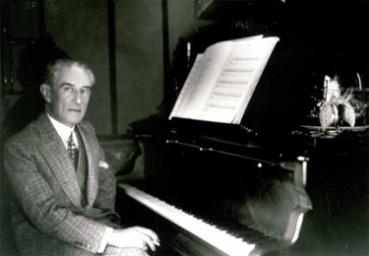

























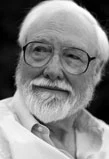


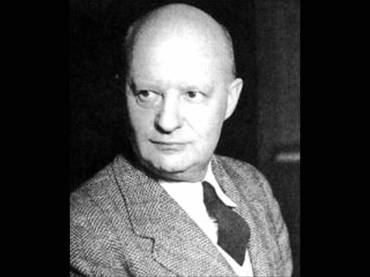
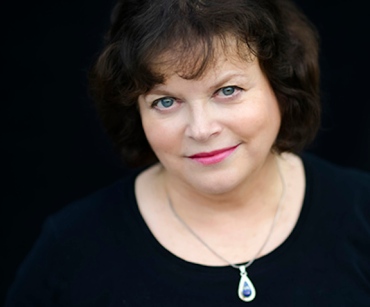

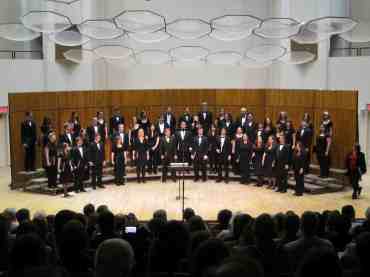
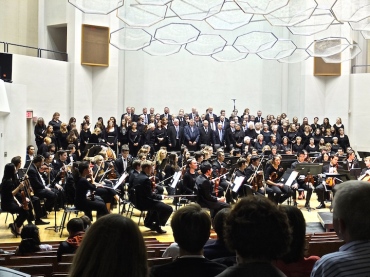
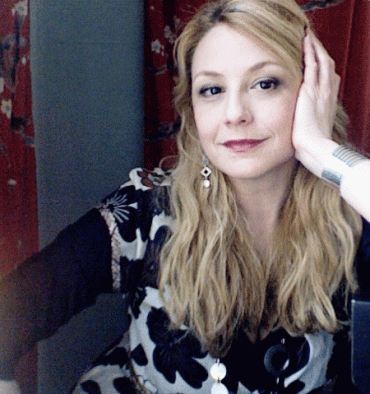
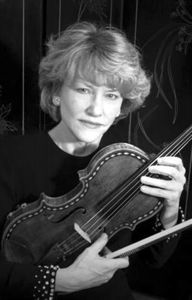
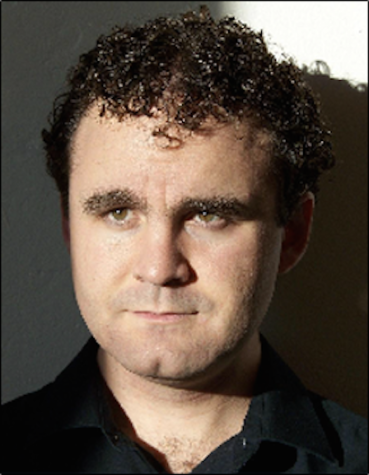
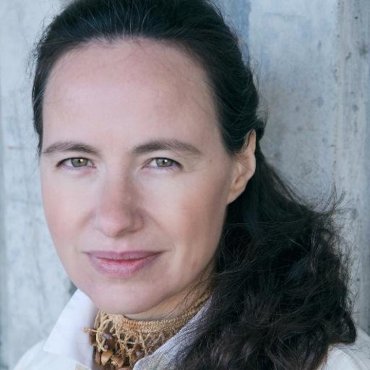
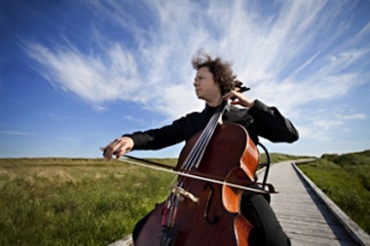
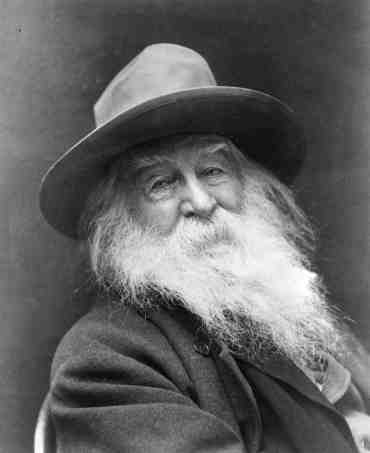
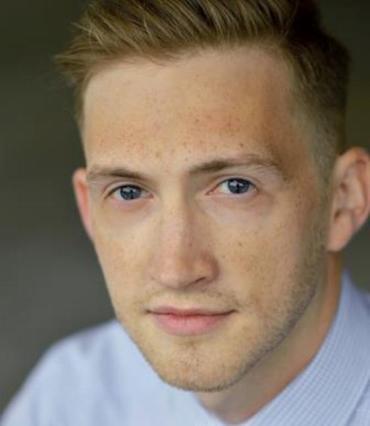
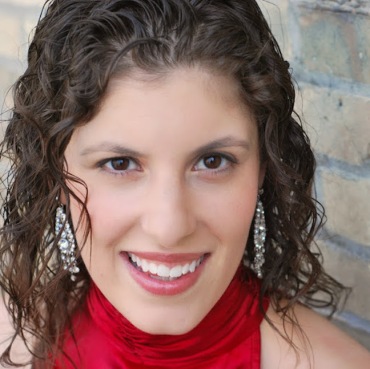






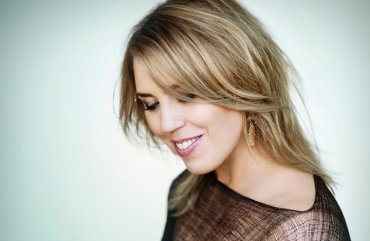

Classical music: What music is good to listen to every day for a year? And why? Clemency Burton-Hill discusses her book “Year of Wonder” on PBS’ “Newshour”
1 Comment
IF YOU LIKE A CERTAIN BLOG POST, PLEASE SPREAD THE WORD. FORWARD A LINK TO IT OR, SHARE or TAG IT (not just “Like” it) ON FACEBOOK. Performers can use the extra exposure to draw potential audience members to an event.
By Jacob Stockinger
What different pieces of classical music would be good to listen to every day of the year?
And what should you know about it?
Those are the simple but ambitious questions that the British writer Clemency Burton-Hill — who now works for the famed classical radio station WQXR in New York City — tackles in her book “Year of Wonder: Classical Music to Enjoy Day by Day” (below).
You can get a sample by going to the book section of Amazon.com and looking inside the book. Just click on the Introduction for an overview and then click on some specifics dates to see how it works.
But recently Burton-Hill (below) also appeared on “The NewsHour” on PBS to talk about the book, where she explained her purpose and method, especially her intent to help expand the audience for classical music.
Her remarks impressed The Ear who has ordered a copy of her book and hopes to learn from it and maybe even pass along some lessons from it.
All the genres, all the great composers (dead and living) and most of the great works are covered, as are many other neglected composers and unknown works. So the book can be considered a terrific resource for music education for both beginners and those who are experienced.
Her commentaries are also a model of brevity and engaging interest.
All in all, “Year of Wonder” seems a supremely practical, unpretentious and informative guide to daily listening, especially given how many of these works – often they are shorter sections of larger works — can be found for free on YouTube. (In fact, a playlist of music featured in the book is available on YouTube. Go to YouTube and type in “Year of Wonder Playlist” into the search engine, then look to the upper right for a list. A sample is at the bottom. Or use this direct link: https://www.youtube.com/watch?v=0wNTNEZYoHg&list=PLKPwLlyrD2y-1x-uKmUBzSOiAh83GhU7A
But you don’t have to take my word for it. Here is a link to the television interview:
https://www.pbs.org/newshour/show/embracing-classical-music-and-its-potential-for-sonic-salvation
The Ear hopes you find the interview both informative and useful.
Happy listening!
Share this:
Tags: #AlexanderScriabin, #AndrasSchiff, #AntonioVivaldi, #ArcangeloCorelli, #ArthurRubinstein, #BaroqueMusic, #BlogPost, #BlogPosting, #BookReview, #ChamberMusic, #ChopinEtudes, #ChoralMusic, #ClaraSchumann, #ClemencyBurton-Hill, #DmitriShostakovich, #EdvardGrieg, #FrancisPoulenc, #FranzSchubert, #FredericChopin, #GabrielFaure, #GiacomoPuccini, #GiuseppeVerdi, #GustavMahler, #JohannSebastianBach, #LeonardBernstein, #LivingComposer, #LucianoPavarotti, #LudwigVanBeethoven, #MauriceRavel, #MaxBruch, #MaxRichter, #MortenLauridsen, #MusicEducation, #NewMusic, #NewYorkCity, #OperaMusic, #PaulHindemith, #SamuelBarber, #SergeiProkofiev, #SteveReich, #StringQuartet, #TheNewsHour, #TomasoAlbinoni, #VocalMusic, #WolfgangAmadeusMozart, #WQXRradio, #YearofWonder, #YouTubevideo, Albinoni, amazon.com, ambitious, András Schiff, Arthur Rubinstein, Arts, audience, Bach, Barber, Baroque, Beethoven, beginners, blog, Book, book review, brevity, Chamber music, Chopin, choral music, Clara Schumann, Classical music, Clemency Burton-Hill, commentaries, commentary, composer, concerto, conductor, Corelli, daily, day, dead, different, Dmitri Shostakovich, Early music, engaging, enjoy, etude, expand, experienced, Faure, Franz Schubert, free, genre, George Frideric Handel, good, great, Grieg, guide, Hindemith, informative, intent, interest, interview, Jacob Stockinger, Johann Sebastian Bach, Johannes Brahms, Leonard Bernstein, lesson, like, link, listen, listening, living, Luciano Pavarotti, Ludwig van Beethoven, Madison, Mahler, Max Bruch, Max Richter, method, Morten Lauridsen, movement, Mozart, Music, Music education, neglected, New York City, opera, Orchestra, Paul Hindemith, PBS, performer, Piano, piece, playlist, Poulenc, practical, Prokofiev, Puccini, purpose, Radio, Ravel, remark, Requiem, Scriabin, section, share, short, simple, sing, Singing, Sonata, song, Steve Reich, String quartet, symphony, tag, Television, The Newshour, TV, United States, unknown, unpretentious, useful, Verdi, Viola, Violin, Vivaldi, vocal music, Wisconsin, Wolfgang Amadeus Mozart, wonder, word, works, WQXR, year, Year of Wonder, YouTube